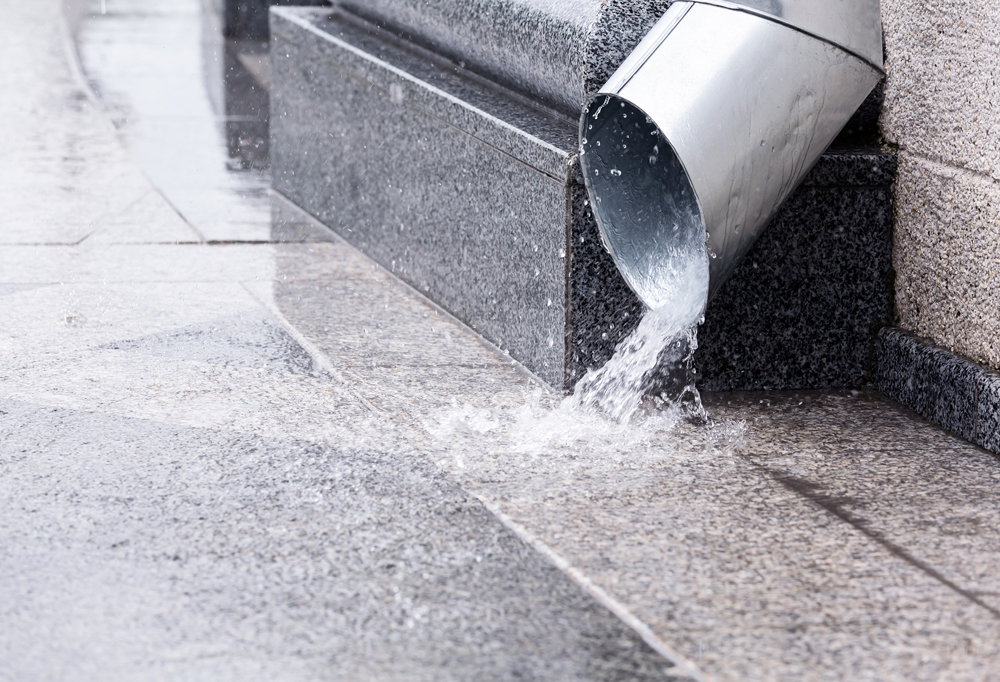Is concrete waterproof?

Concrete is a pretty remarkable manmade material that’s extremely durable over time. It’s used in sidewalks, buildings, roads, and bridges. Those are impressive structures made from a material that starts out as water, cement, and aggregate (rock or other small particles).
There’s only one problem with concrete—it becomes porous as it dries. That means concrete is not waterproof. Brand new cured concrete might be relatively waterproof for a little while, but it doesn’t take long at all for water to penetrate the surface and begin to cause deterioration. So while it might look like water is collecting on top of your concrete sidewalks, it’s also seeping into them.
As water seeps into the concrete, it begins to wear away some of the material and create larger pockets where water can collect and cause further damage. Water seeping into concrete can also cause staining over time on the surface of your concrete, and it can infiltrate your building and cause significant damage.
The good news is that there are products that can help make concrete less porous overall. Some products can be mixed into the concrete at the time it’s poured, while others are surface coatings that can be applied to cured concrete to create a waterproof finish. Many specialty coatings also protect against surface stains and help resist UV damage.
For exposed concrete, like sidewalks or the sides of buildings, applying a waterproofing product is fairly straightforward, although you do want to ensure you’ve selected the right product for your surface and applied it properly. But it can be more complicated to seal the foundation or the exterior parts of a building wall that are below ground. In those situations, it’s best to consult a professional with experience in foundation and below-ground waterproofing.
If you need assistance with specialty coatings to help repel water from concrete surfaces, call JK Industries today.
